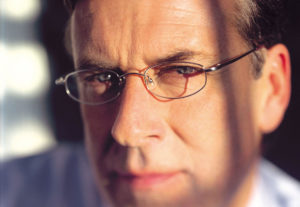
Hmmmmm….
I notice that, as I go down through my vasanas or core issues, I reach a place where I can almost draw back and see the bigger picture.
For instance, I’ve been reviewing my life and seeing how everything I did fits in with or has prepared me for what I’m doing now.
History, academia, museum work, Cold Mountain, est, travel in India, business writing, sociology, leaving academia, configuration management, writing legal decisions, etc. – each of those “assignments” contributed something to who I am and what I do at the present time.
As a second example, and the one I want to focus on here, when I draw back further and look, something very different comes into view.
I see a grand motif that colors everything about my thoughts, feelings, and behavior. It flows down through my life and also explains much about where I am today.
Everyone’s motif will be a matter of individual choice. And in most cases the grand motif won’t be pretty. (1)
It’s reached in a moment of trauma and has become prized and habitual, immersed in the background of obviousness, hidden in plain sight.
OK, OK, enough build-up, Steve. I’m stalling because I’m embarrassed to say what mine is.
My grand motif is: “You can’t trust anyone.”
Everything I do, feel, and think is seen from the vantage point of always, already not trusting anyone. You’ll find traces of it everywhere you look.
You can see it in the way my face looks after many years of seeing life this way.
You can hear it in my quick response to an offer to help. No, thank you. I’d rather do it myself. No, I’ll do it. That’s fine. I can manage. (2) I don’t need help. After all, you can’t trust anyone (to do the job right, show up for work, pay on time).
I don’t make loans (you can’t trust anyone to repay); I only give money if I have it (that way I’m not disappointed later by people you can’t trust).
On and on the movement that ends in solitude goes.
I learned it from my Dad, who I’m sure learned it from his Dad, an example of intergenerational transfer.
But it turns out that Dad was only the ignition key that started my engine in this lifetime. Michael tells me I’ve had this vasana for lifetimes. (3)
If I were to comment on myself, I’d probably be self-serving. (4)
I don’t trust myself to report on myself – or anyone else to report on themselves. As I said, I don’t trust anyone. Least of all myself.
The only place to go with this vasana is … well, into a very dark place, alone, let me put it that way.
Any motif that governs how we think, feel, and act is not eternal, not of love, and not of freedom.
It’s an artificial restriction and boundary that we’ve erected and then obliged ourselves throughout time to respect. Even though it may have an awful effect on us.
Now that I know, I’m working on trust. My colleagues would probably notice that there’s been a change in me. I’m keeping my big paws off things. I’m welcoming assistance. I’m encouraging others to step out.
I’m more than my vasanas. I’m more than a grand motif.
Footnotes
(1) Where is the grand motif, “I love everyone”?
(2) I don’t see help as an opportunity for another person to make a difference. It’s a potential source of disappointment.
(3) AAM: In many ways, sweet one, this has been your Achilles heel, not only in writing appeals and asking for donations, for money, but – in many lifetimes – you were fiercely independent and you literally can’t stand asking for help. (Archangel Michael in a personal reading with Steve Beckow through Linda Dillon, Oct. 1, 2017.)
(4) Self-serving bias: I do no wrong; my Dad does all the wrong. Everything good about me I grew; everything bad I inherited from my Father, etc.

